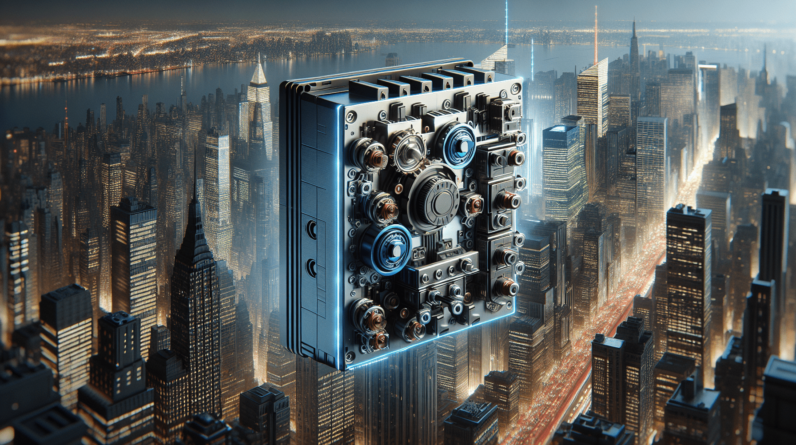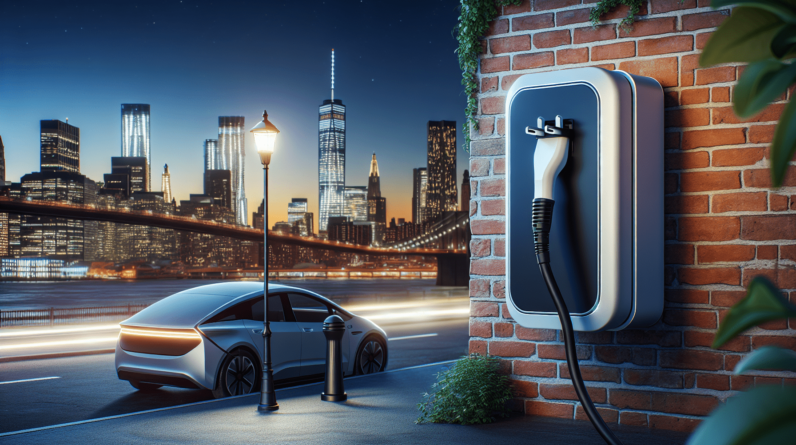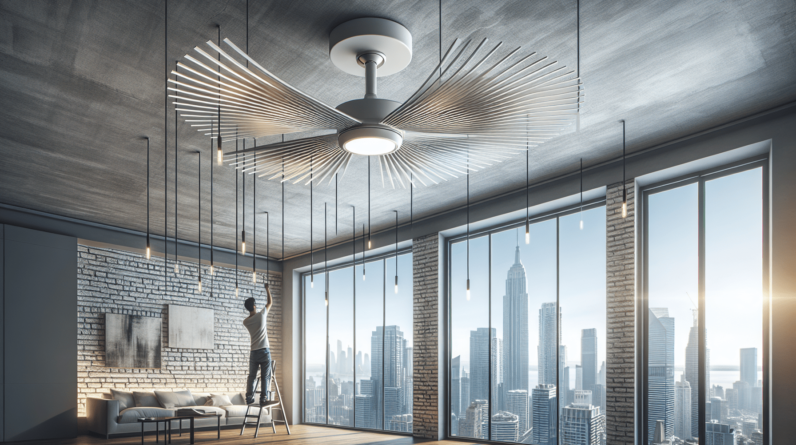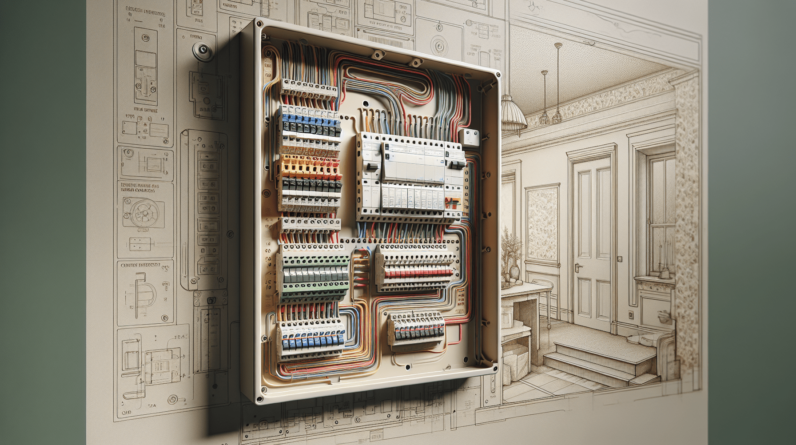

Have you ever wondered what keeps your home powered and functioning smoothly?
Understanding the Electrical Panel
An electrical panel, also known as a breaker box or fuse box, is a crucial component in your home’s electrical system. It serves as the main hub where electricity is distributed throughout your house. Keeping your electrical panel in good condition is essential for your home’s safety and efficiency.
What Is an Electrical Panel?
At its core, the electrical panel is a metal box that houses circuit breakers or fuses. These breakers or fuses control the flow of electricity to different circuits in your home. When there’s an overload or short circuit, the breaker trips, cutting off the power to avoid potential hazards like electrical fires.
The Importance of Your Electrical Panel
Your electrical panel does more than just distribute electricity; it also acts as a safety mechanism. Without a well-functioning panel, you risk overloading circuits, which can lead to electrical fires or equipment damage. Regular maintenance and monitoring of your electrical panel can help safeguard your home and family.
Components of an Electrical Panel
Understanding the components of your electrical panel can empower you to manage your home’s electricity better. Here are the key parts that work together:
Main Breaker
The main breaker is often located at the top of the panel and serves as a disconnect switch. It controls power to the entire house and allows you to shut off electricity when needed. Knowing how to locate and operate your main breaker is vital for your safety.
Circuit Breakers
These smaller switches within the panel regulate electricity distribution to various circuits. Each household circuit—like those for outlets, lighting, and appliances—has its own breaker. In case of an overload, the respective breaker trips instead of your whole house losing power, making it easier to troubleshoot the issue.
Neutral Bar
The neutral bar is where all the neutral wires from your circuits connect. This component plays a crucial role in completing the electrical circuit and allowing safe discharge of excess current. It’s essential that the neutral wire connections are secure for your system to work properly.
Ground Bar
Similar to the neutral bar, the ground bar provides a connection for the ground wires. Grounding is important for safety, as it helps to protect both individuals and equipment from accidental shocks and surges. Keeping this bar in good condition is crucial for a safe electrical system.
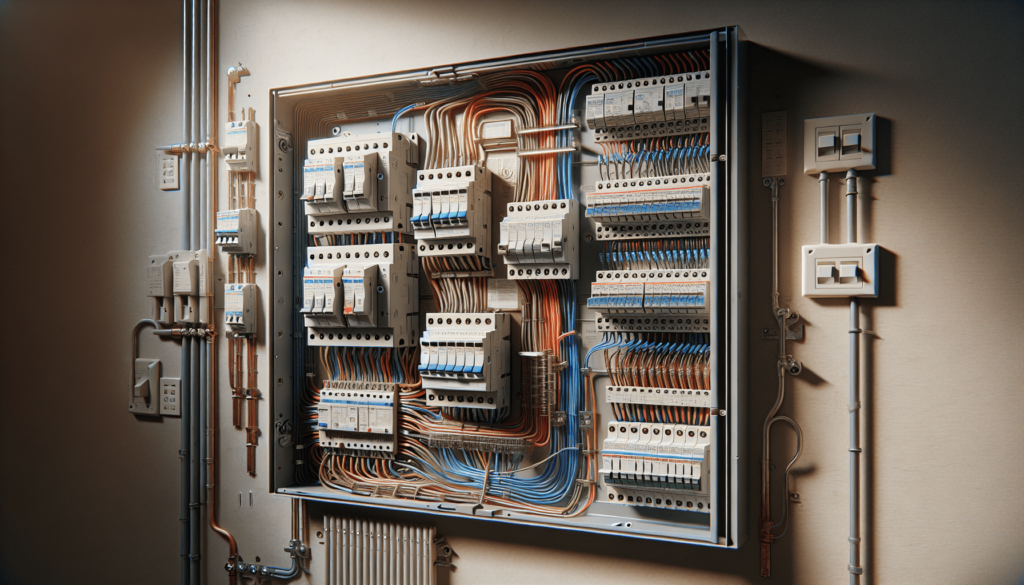
Types of Electrical Panels
Not all electrical panels are the same, and knowing the different types can help you understand your options and needs.
Standard Panels
Most homes utilize standard service panels, typically rated from 60 to 200 amps. These panels distribute power to various circuits and are suitable for most households. A 200-amp panel is often recommended for modern homes due to increased electrical loads from devices such as HVAC systems and smart home technology.
Subpanels
Subpanels are smaller electrical panels that can be added to provide power to specific areas like garages or basements. They are connected to the main panel and can help distribute electricity in a more localized manner, reducing the strain on the main panel.
Smart Panels
With the rise of smart home technology, smart panels are becoming increasingly popular. These panels offer advanced features like remote monitoring and improved energy management, allowing you to track usage and identify potential issues right from your smartphone.
Mini-Panels
For homes that require fewer circuits, mini-panels can be a cost-effective solution. These panels may house fewer breakers but still provide enough power for your basic electrical needs. However, you’ll want to evaluate whether they meet the demands of your household.
Signs You May Need to Upgrade Your Electrical Panel
If you’re unsure whether your electrical panel is functioning properly or if it needs an upgrade, look out for these warning signs:
Frequent Tripping of Breakers
If you find yourself frequently resetting breakers, that’s a sign of overload or a short circuit. This can indicate that your panel isn’t equipped to handle your electrical demands, and you may need to consider an upgrade.
Flickering or Dimming Lights
If your lights flicker or dim, especially when using appliances, there’s a chance that your existing panel may not be delivering sufficient power. This can be a nuisance and, more importantly, a safety concern.
Burning Smell or Noise
Any smell of burning or unusual noises coming from your panel can indicate a serious problem. If you notice these issues, it’s best to turn off power immediately and consult a qualified electrician for an evaluation.
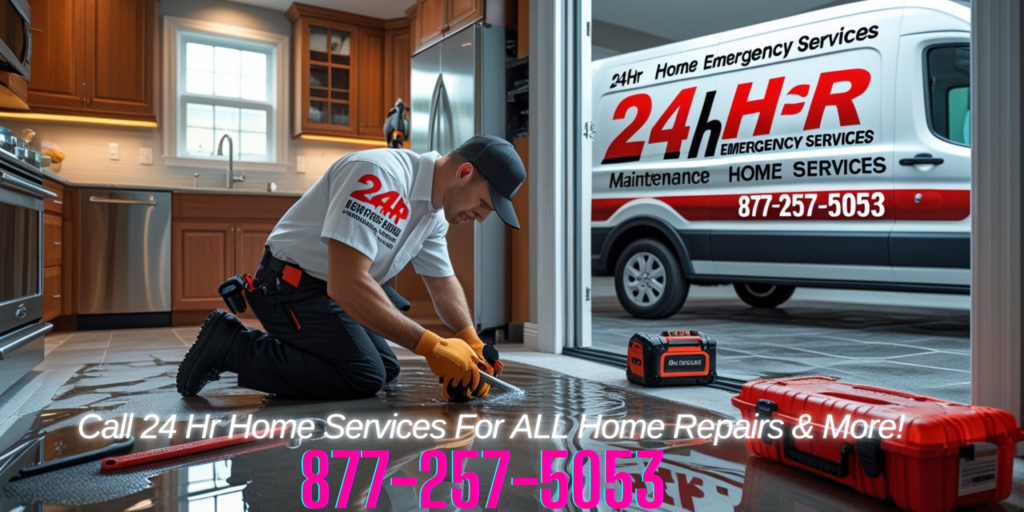
Old or Outdated Panel
If your home still has its original electrical panel, it may be time for an upgrade. Panels older than 20 years may not meet today’s electrical standards and could pose a safety hazard.
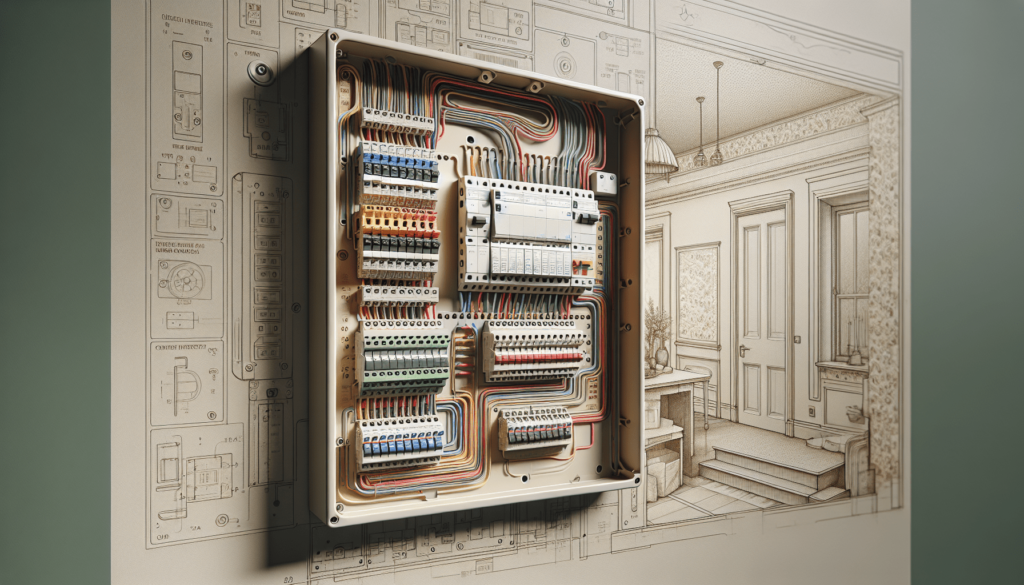
How to Properly Maintain Your Electrical Panel
Keeping your electrical panel in great condition is key to ensuring safety and reliability in your home. Here are some tips for proper maintenance:
Regular Inspections
Performing regular visual inspections of your electrical panel can help you catch any potential issues early on. Look for signs of wear or damage such as rust, scorch marks, or loose connections.
Cleanliness Matters
Dirt and dust can accumulate around electrical panels, posing a risk for fires. Make sure to keep the area around your panel clean and free from clutter. This can also help with ventilation, keeping the panel cooler and functioning effectively.
Labeling Circuits
It’s essential to have clear labels on all circuit breakers indicating what each one controls. This not only helps in identifying issues quickly but also enhances safety for anyone working on the electrical system.
Professional Maintenance
Having a professional electrician conduct periodic assessments of your electrical panel can prevent small problems from turning into larger ones. Regular professional check-ups are a good investment in your home’s safety.
Common Electrical Panel Issues and Solutions
Understanding common electrical panel issues can empower you to take the necessary steps for resolution. Here are a few common problems you may encounter, along with their solutions:
Overheating
If the panel feels warm to the touch, it could be a sign of overloaded circuits or poor wiring. This situation should not be overlooked, as it can become a fire hazard.
Solution: Call an electrician to assess the load and potentially upgrade your panel or redistribute circuits.
Water Damage
Moisture can lead to corrosion or short circuits. If your panel is in a damp area, it is at risk of water damage.
Solution: Ensure your panel is weatherproofed or considered relocating it to a drier area in your home, if possible.
Rust
Rust can weaken the integrity of your panel and affect its performance.
Solution: If rust is found on your electrical panel, seek professional help to replace corroded components or the whole panel if necessary.
The Cost of an Electrical Panel Replacement
If you’ve determined it’s time to replace your electrical panel, understanding the costs involved can help you budget appropriately. Here are various factors that can affect the cost:
Panel Size
Larger panels generally cost more than smaller ones, due to increased capacity and added components. A 200-amp panel might range between $800 and $2,500, depending on the brand and features.
Labor Costs
Labor costs can vary widely based on market rates in your area. Expect to pay between $200 and $500 for the installation, depending on the complexity of the job and the electrician’s expertise.
Additional Upgrades
If your new panel requires additional upgrades such as bringing your home up to code or updating wires, these can also hefty costs. Upgrading old electrical infrastructure can add hundreds, if not thousands, to the final bill.
Hiring the Right Electrician for Your Panel Needs
Choosing the right electrician is crucial for ensuring your electrical panel and system function correctly and safely. Here are some tips to help you find the right professional for your project:
Certifications and Licenses
Always check that the electrician is certified and licensed. Professional credentials indicate a level of expertise that is essential for handling electrical installations and repairs.
Experience Matters
Look for an electrician with experience specifically related to panel upgrades or installations. A seasoned professional will be more familiar with the intricacies of electrical systems.
Reviews and References
Don’t hesitate to ask for references or check online reviews for potential electricians. Opinions from previous customers can provide you with valuable insights into the reliability and quality of work.
Estimates
Get written estimates from multiple electricians before making your choice. This will give you a better understanding of the range of costs and help you ensure you’re getting a fair deal.
Energy Efficiency and Your Electrical Panel
As energy efficiency becomes increasingly important, your electrical panel can also play a role in reducing energy consumption. Here are ways to enhance your system’s efficiency:
Use Energy-Efficient Appliances
Opting for appliances with the ENERGY STAR label can significantly reduce energy use, leading to lower electrical bills. Keep in mind that your panel needs enough capacity to handle these high-efficiency devices.
Install Smart Meters
Smart meters can provide real-time monitoring of energy usage, allowing you to identify areas where you can cut back. By understanding your consumption patterns, you can adjust your habits for better efficiency.
Upgrade to LED Lighting
Switching to LED bulbs can dramatically lower your energy costs. LED bulbs use up to 75% less energy than traditional incandescent bulbs, making them an excellent choice for your home.
Conclusion
Understanding the role and functioning of your electrical panel is essential for maintaining a safe and efficient home. By keeping an eye on its condition, making necessary upgrades, and ensuring that you have the right professionals to help, you can support both your home’s safety and energy efficiency. Always remember, a well-maintained electrical panel is crucial for keeping your home powered and secure!


